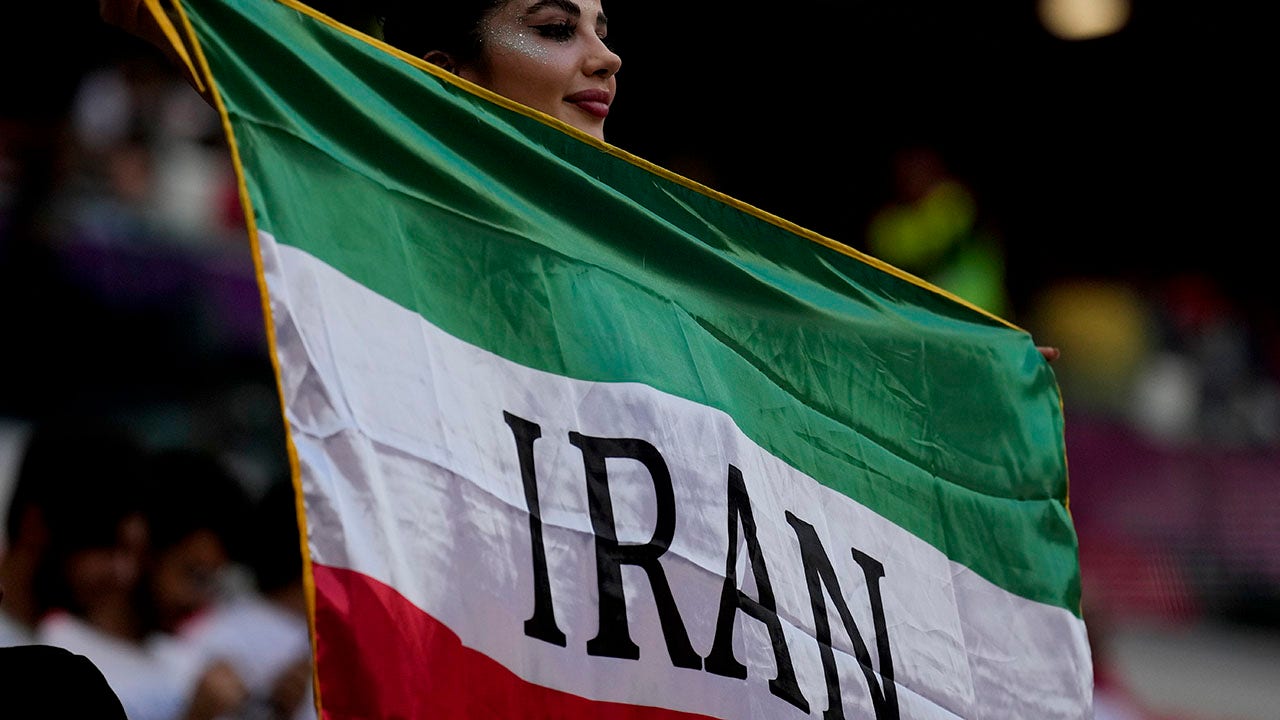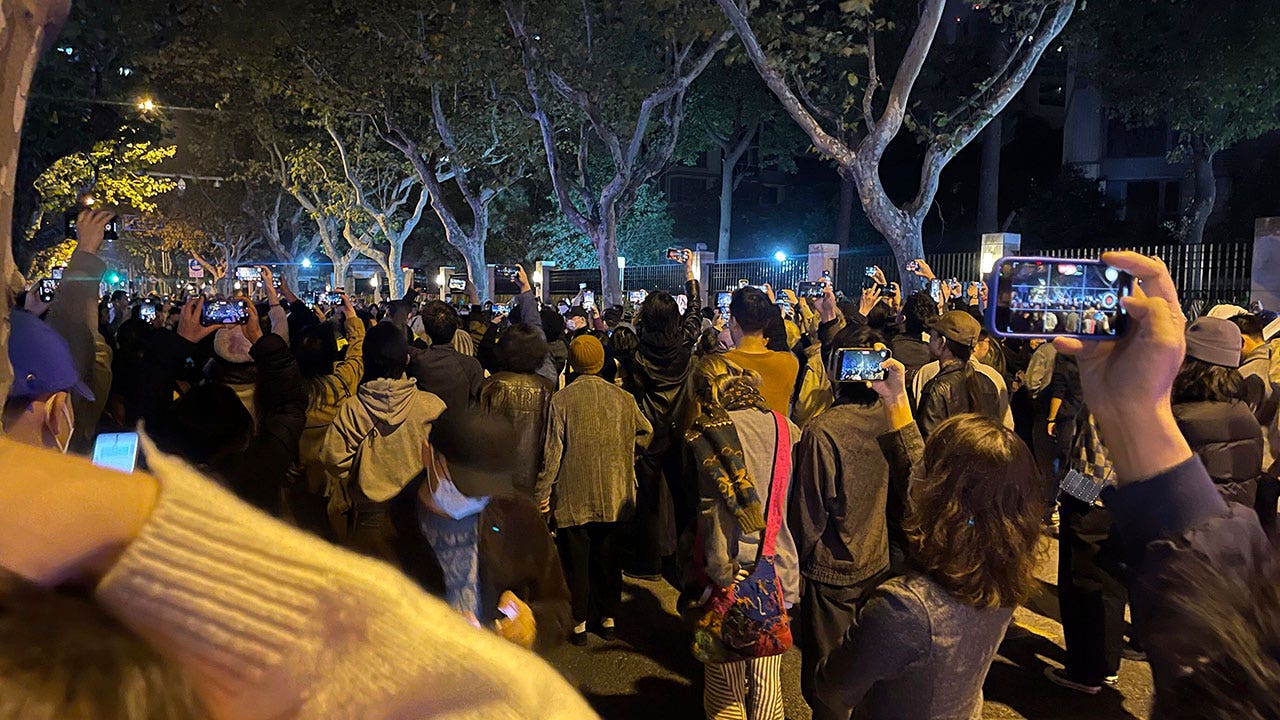The Biden administration’s policy on the Middle East has fractured some of the United States’ most dependable partnerships in the region, causing typically friendly countries to build stronger relationships with China and Russia.
“That countries that historically have been close partners of the United States are turning to Russia and China is a massive failure of American leadership,” Victoria Coates, a senior research fellow for international affairs and national security at the Heritage Foundation, told Fox News Digital.
Coates’ comments come amid a chaotic time for U.S. relations in the Middle East, including a disastrous retreat of American forces from Afghanistan, an on-again, off-again, nuclear negotiation with Iran, and a disconnect with Saudi Arabia over global energy policy.
That disconnect between President Biden and Middle Eastern partners became more evident in March, when leaders from Saudi Arabia and the United Arab Emirates declined to field a phone call from the president. Biden had hoped to discuss having the oil-rich countries increase exports amid soaring gas prices in the U.S. and a ban on imports of Russian gas, but was given the silent treatment for his efforts.
WHITE HOUSE SAYS BIDEN BELIEVES SAUDI ARABIA HAS SIDED WITH RUSSIA AFTER OPEC+ CUT
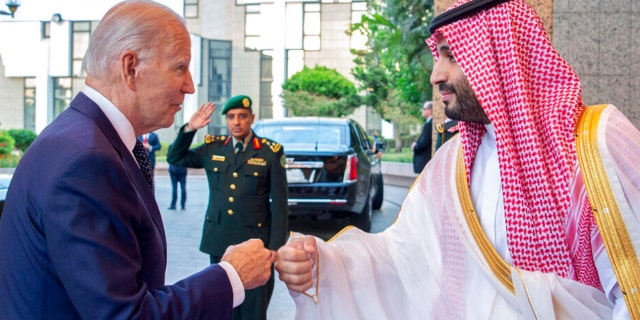
Saudi Crown Prince Mohammed bin Salman, right, greets President Joe Biden with a fist bump after his arrival at Al-Salam palace in Jeddah, Saudi Arabia.
((Bandar Aljaloud/Saudi Royal Palace via AP, File))
The rift came to a head last week, when the Saudi-led OPEC+ oil alliance opted to cut oil production, a decision the bloc said was made in the best interests of its members economies.
In response, the Biden administration condemned the decision and vowed to review the U.S. relationship with Saudi Arabia, hinting that there would be “consequences” for the oil-rich kingdom.
The Saudis issued a statement of their own in response on Thursday, saying that Biden had attempted to nudge them toward delaying the decision, which will likely boost oil prices in the U.S., until after next month’s midterm elections, a move they argued “would have had negative economic consequences” for the member nations.
“These outcomes are based purely on economic considerations that take into account maintaining balance of supply and demand in the oil markets, as well as aim to limit volatility that does not serve the interests of consumers and producers,” a Saudi Foreign Ministry official said in the statement.
“In the case of Saudi Arabia, the fundamental disconnect is that they see oil as a commodity that is a key pillar of their economy, while the Biden administration sees oil as a domestic political issue,” said Coates who is also an advisory board member of the Vandenberg Coalition.
SEN. BOB MENENDEZ CALLS FOR END ALL COOPERATION WITH SAUDI ARABIA OVER OPEC+ OIL CUT
Russia and China have emerged in recent years as the chief geopolitical foes of the United States, a realization that has caused American leaders to pivot the country’s foreign policy strategy toward addressing the emerging threats. But doing so has led traditional partners in the Middle East to look for other ways to further their own interests, which has often led them to pursue tighter ties with Moscow and Beijing.
China has continued to push its influence in the Middle East, becoming the largest buyer of oil from the Gulf region, investing in the region’s infrastructure, and partnering with Saudi Arabia on ballistic missile development.
The Gulf states have also rebuffed a U.S.-led effort to isolate Russia on the international stage over its invasion of Ukraine, taking a more neutral stance on the conflict while standing by their agreement with Russia not to push a large increase in oil production.
“None of them want to partner with Russia and China—but they are exploring the option because they feel Washington is offering them nothing,” Coates said.
Gulf states may also have an easier time in negotiations with Russia and China, who view such partnerships as transactions more than a declaration of values.
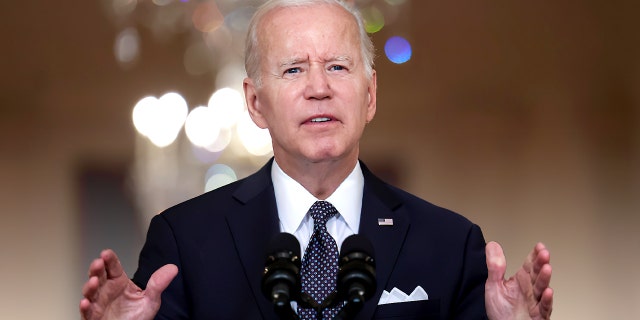
President Joe Biden.
(Photo by Kevin Dietsch/Getty Images)
“These states may be even more appealing as partners, because they are not asking the Middle East to transform. They merely seek transactional relationships.” Foundation for Defense of Democracies Senior Vice President Jonathan Schanzer told Fox News Digital.
The fracturing of relationships with Middle Eastern partners started under the administration of former President Barack Obama, Schanzer argued, pointing out that American policy in the region started to become inconsistent under his leadership.
“The United States has been operating with a trust deficit in the Middle East since the Arab Spring of 2011,” Schanzer said. “The Obama administration went from that policy of supporting chaotic revolution to a policy in 2013 of appeasing Iran, the most destabilizing force in the region.”
Making matters worse, American policy in the region became more inconsistent as power in Washington changed from party to party.
“America’s foreign policy has been one of whiplash, with Democrats and Republicans racing to undo the policies of their predecessors,” Schanzer said. “It should not be surprising that Middle Eastern states now seek stability, even if that means doing business with China and Russia.”
WHITE HOUSE DENIES VENEZUELA DEAL AS CRITICS WARN ANY MADURO REGIME DEAL IS A MISTAKE
Critics have argued that America’s disengagement from the Middle East and its partners in the region has accelerated under Biden, with Coates pointing to a U.S. decision last year to pull some advanced anti-missile systems from Saudi Arabia at the same time the country was combating attacks launched by Houthi rebels in Yemen.
“The Saudis are also deeply suspicious of the President’s commitment to their security after the removal of the Patriot batteries last year and the current threats to cut off arms sales,” Coates said.
Critics have long questioned the president’s approach to Saudi Arabia, with Biden promising during the debates to make the traditional American partner a “pariah” on the international stage over their alleged involvement in the killing of Washington Post contributor Jamal Khashoggi, only to take a softer stance once entering office.
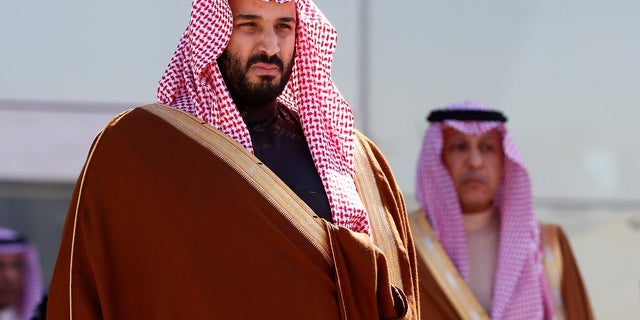
Saudi Deputy Crown Prince Mohammed bin Salman.
(REUTERS/Faisal Al Nasser)
But during a trip to the kingdom that the administration said was aimed at improving cooperation between the two nations, Biden boasted that he made had clear to Saudi Crown Prince Mohammed bin Salman that he believed the Saudi leader was to blame for Khashoggi’s death.
The Saudi’s have denied being involved in the death of the U.S.-based journalist.
Meanwhile, the administration has also made rekindling the Obama-era Joint Comprehensive Plan of Action (JCPOA), better known as the Iran Nuclear Deal, a cornerstone of its policy on Iran, a move that is deeply unpopular with Middle Eastern partners.
PRESIDENT BIDEN CAUGHT ON HOT MIC IN FLORIDA: ‘NOBODY F—– WITH A BIDEN’
“They were not happy with the deal to begin with … the scope was too narrow,” Dr. Theodore Karasik, the Fellow on Russian and Middle Eastern Affairs at the Jamestown Foundation, told Fox News Digital.
Negotiations over the rekindling of the deal have also stalled, leaving Middle Eastern partners unsure of what U.S. policy toward Iran will look like in the future.
“It is important to recognize that much of the talk about the JCPOA in the last few months was really talking about a dead process,” Karasik said. “The Gulf states want this process to end, so they are happier about this situation. But at the same time, they have a big neighbor who is going through a catharsis right now, and they’re wondering, ‘Should we wait and see what happens?’”
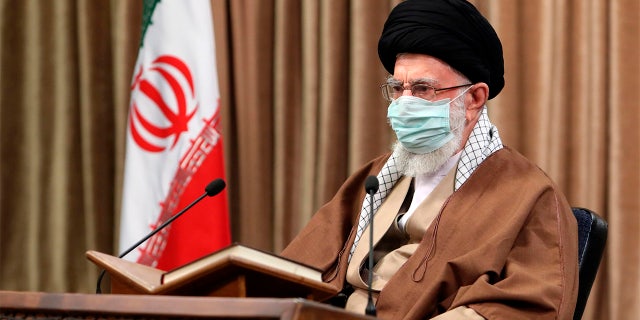
Iranian Supreme Leader Ayatollah Ali Khamenei.
(Office of the Iranian Supreme Leader via AP)
But Joel Rubin, a former deputy assistant Secretary of State for the Obama administration, argues that former President Donald Trump’s policy of appeasement toward the Saudi’s put Biden in a difficult position.
“The Saudis basically yanked our chain for four years of Donald Trump’s administration,” Rubin told Fox News Digital. “I think that President Biden has been dealt a hand where the Saudis were accustomed to getting everything they wanted.”
DURBIN ADMITS BIDEN’S SAUDI ARABIA OUTREACH, FIST BUMP ‘DIDN’T WORK’
Rubin argued that Biden has made it a priority to “stand up for American interests” during negotiations with the Saudis, but that he also made the important step of making a trip to the kingdom in an attempt to find a beneficial path forward.
Instead, Rubin said that the Saudis decided to side with Russia, a decision he argues will come with consequences.
“At the end of the day, the most important interest between the United States and Saudi Arabia is the free flow of oil and energy markets,” Rubin said. “New tools need to be applied to convince them and change their calculus.”
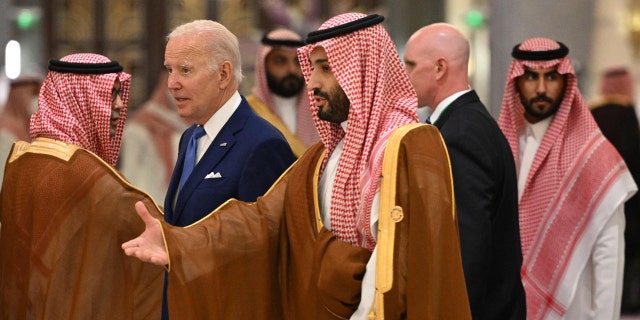
President Joe Biden and Saudi Crown Prince Mohammed bin Salman arrive for the family photo during the Jeddah Security and Development Summit.
((Photo by MANDEL NGAN/POOL/AFP via Getty Images))
Rubin noted that one consequence could be that Congress will no longer approve weapons and military technology sales to Saudi Arabia, leaving them with few places to turn after decades of American military assistance.
“Those are the kinds of things that need to be done to put some pressure on Saudi Arabia to understand that there are consequences for decisions,” Rubin said. “If Saudi Arabia wants to start purchasing Russian military hardware, have at it. How’s it going for them right now?”
Rubin also questioned the timing of Saudi Arabia’s decision to lead the charge against an increase in oil supply, arguing they may think they are better off with a change of power in Washington.
“There’s a suspicion that this move is intended to spike oil prices before an election to influence the outcome, so that doesn’t sit well either,” Rubin said.
But Karasik believes the relationships with Middle Eastern partners are still salvageable, pointing out that while the political situation has often been complicated, the countries are still cooperating militarily.
“That military track is still functioning,” Karasik said. There’s still exercises ongoing … so until there’s some sort of action by Washington, that military track is still operating.”
CLICK HERE TO GET THE FOX NEWS APP
Coates also expressed optimism that the partnerships can be repaired, but argued the changed needed may not happen with Democrats running Washington.
“Because they would prefer to partner with the U.S., the situation is reversible,” Coates said. “But given the Biden administration’s behavior, it may fall to Congress after the midterms to maintain these relationships.”
The White House did not immediately respond to a Fox News request for comment.
 Iktodaypk Latest international news, sport and comment
Iktodaypk Latest international news, sport and comment

